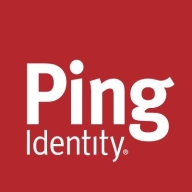

Ping Identity Platform and Microsoft Active Directory are frequently compared identity and access management solutions. User reviews indicate that Ping Identity Platform excels in customizability and advanced security features, while Microsoft Active Directory is widely adopted for its integration capabilities and comprehensive feature set, leading users to often find it more valuable despite potentially higher costs.
Features: Users appreciate Ping Identity Platform for its robust API integration, flexibility in various environments, and advanced security. Microsoft Active Directory is praised for its seamless integration with Windows environments, extensive management features, and comprehensive user management capabilities.
Room for Improvement: Ping Identity Platform users suggest enhancements in documentation, user training resources, and expanding integration options. Microsoft Active Directory users commonly request improved cloud support, simplified management interfaces, and enhanced mobile access options.
Ease of Deployment and Customer Service: Users find Ping Identity Platform straightforward to deploy with solid customer support but note integration challenges. Microsoft Active Directory deployment is seen as more complex, particularly in hybrid environments, but benefits from extensive community and professional support, aiding in problem resolution.
Pricing and ROI: Ping Identity Platform users report higher upfront costs but see significant ROI through reduced operational complexity and enhanced security. Microsoft Active Directory users frequently mention higher long-term costs but justify them with enhanced organizational integration and added features, making the investment worthwhile for many.
The solution is really time-saving since I don't need to create users in each server or system manually, and user access control is streamlined.
Support documents are available on the internet in every language.
If you purchase retail, the support will be more difficult because they will assess the priority or rating from the customer.
Sometimes support takes long to engage and resolve, extending over weeks or even months.
I have reached out to technical support for troubleshooting SAML certificate mismatches and federated errors between Ping and enterprise apps.
Microsoft Active Directory scales effectively; I don't foresee any issues with that at all.
If you meet the installation requirements from Microsoft, it will be very stable.
With multiple domain controllers, stability is ensured.
I've been working with Microsoft Active Directory for over 3 years, and we've had no problems.
Exporting and verifying group memberships require command line scripts, which isn't simple.
There are some features that need improvements in terms of ease of use and frequency of updates.
Sometimes, it can be overly complicated, and when you apply Group Policy in an Active Directory environment, sometimes those settings apply and sometimes they don't.
I would like to enable ServiceNow Generative AI for auto-diagnosing PingFederate SSO failures and suggest remediation steps.
Ping Identity Platform has multiple products for access management, identity management, a solution for API security, a solution for authorization, and a product for identity verification.
For the cloud solution in our region, the pricing of Microsoft Active Directory is very high.
I consider Microsoft Active Directory expensive because if you buy this thing bundled with the Windows Directory Server, you get five user licenses for about a thousand euros, or a little bit less than this.
The pricing, setup cost, and licensing with Microsoft Active Directory is straightforward; you just buy the server and then have to buy the user CALs.
To assess the impact of Microsoft Active Directory's centralized domain management on security protocols and access permissions, Microsoft Active Directory itself has constraints with security because when we have a solution such as SSO or Single Sign-On, which makes it easier for users to log in, some parts have security openings.
One valuable feature is the centralized creation of IDs.
I can control all the devices in my domain by just changing the group policies in one place.
The platform enhances security measures by analyzing multi-factor authentication attempts, highlighting suspicious patterns, and generating compliance reports.
It's a converged platform which can do both identity management, access management, and recently they are bringing privilege management capability as well.
| Product | Market Share (%) |
|---|---|
| Ping Identity Platform | 5.7% |
| Microsoft Active Directory | 3.3% |
| Other | 91.0% |

| Company Size | Count |
|---|---|
| Small Business | 20 |
| Midsize Enterprise | 7 |
| Large Enterprise | 20 |
| Company Size | Count |
|---|---|
| Small Business | 9 |
| Midsize Enterprise | 2 |
| Large Enterprise | 20 |
Active Directory stores information about objects on the network and makes this information easy for administrators and users to find and use. Active Directory uses a structured data store as the basis for a logical, hierarchical organization of directory information.
This data store, also known as the directory, contains information about Active Directory objects. These objects typically include shared resources such as servers, volumes, printers, and the network user and computer accounts.
Security is integrated with Active Directory through logon authentication and access control to objects in the directory. With a single network logon, administrators can manage directory data and organization throughout their network, and authorized network users can access resources anywhere on the network. Policy-based administration eases the management of even the most complex network.
We monitor all Single Sign-On (SSO) reviews to prevent fraudulent reviews and keep review quality high. We do not post reviews by company employees or direct competitors. We validate each review for authenticity via cross-reference with LinkedIn, and personal follow-up with the reviewer when necessary.